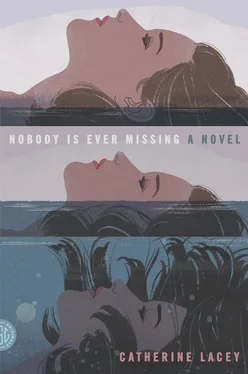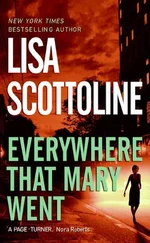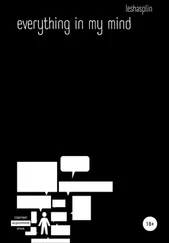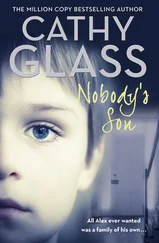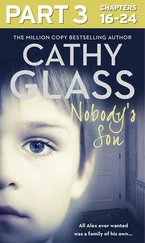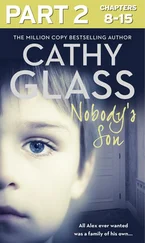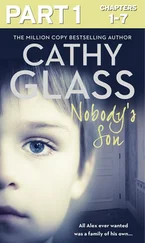Ah, yes. That’s where we are.
He smiled and I smiled, but only a very little.
So you’re here , Werner said. I could tell he meant he hadn’t actually expected me to come. Maybe I should have felt a bit of shame or a bit of awkwardness, but I did not, for some reason, because I had some rare confidence in being here, that this was the right place for me to be for an indefinite amount of time, that this was the place where I could maybe make sense to myself.
Well, I should show you around, at least , he said, like I’d just won something he didn’t want to give away.
His place was a series of small wooden cabins and recycled trailers connected by unevenly cut doors he had to duck a little to get through. He’d built these semi-ruins himself, a constant project over the last twentysomething years he’d been out here. It’s probably a good distraction from living alone, something to schedule a day around, something to give urgency to the unurgent weeks: rusted hinges, peeling caulk, a leak, more peeling, more rust, more leaks — the circular requirements of shelter. He kept the kitchen stocked as if he was waiting for the world to end — a pantry packed with cans, an extra freezer just for cuts of meat and flour sacks. In my bedroom and the living room, he’d raised the trailer ceilings using wooden planks, salvaged windowpanes, and bubble wrap. It brought in a grassy, greenhouse kind of light, but the room still smelled like animal and mildew.
The brain needs space to breathe , he said.
It’s nice. There is a lot of air here , I said. Dead bugs lounged on dust pillows in the corner. Gnats buzzed.
We’ll have tea at six , he said before he left me in my shed-room, and I was thankful that he didn’t try to make sure I was okay, and he didn’t ask if I needed anything, and he didn’t thank me for bringing those groceries, and this was probably why I was here: that this was one of those places I could go that just didn’t count toward anything, time I could be alone and alone with being alone and Werner knew or understood that or maybe he didn’t understand but it didn’t matter if he knew it or not because whether or not he knew, I believed it was understood.
* * *
You decided against bringing the family.
What family? I asked. We were having dinner on the porch that faced the ravine, where we always had dinner, the only time we sat to eat a meal.
Well , he said, head tilted and chewing meat, I just supposed that you had one. You seem like a part of that kind of machine.
I don’t really have a family , I said.
Well, that would explain why your family isn’t here, if they are not in existence.
Werner put his knife down on his dinner plate. I knew he would explain himself in this way, too, that he was without family.
Did you know that lambs lie down to be slaughtered? he asked. Such sad little creatures they are. So hopeless.
His sheer hair fluttered. I looked down at the ravine then up at the sky morphing into blues and purples. I have recalled this night often, sometimes daily, in the years since I left New Zealand, but I still do not know why it is this moment that I remember so clearly — sky, Werner, knife on plate, talk of how lambs die — instead of one of the louder, more eventful ones. Some of the loudest and most eventful events that happened there are still foggy, half-ruined slide shows, the images unfocused, a fleshy thumb obscuring some key thing or person. But that night it seemed I had reached some indescribable reason, and the wildebeest sulked away, and I made some sense to myself and I wouldn’t say I was happy or even content, but I had emptied myself of something and was just there.
I eat them for the sake of this pity , Werner said, pushing this dripping bite into his mouth.
What makes them lie down?
Pardon?
I mean, why do they give up so easily?
Werner put another bite of animal in his mouth and chewed.
They are not giving up , he said. They are just being polite.
He smiled, then turned back to face the ravine.
I crossed my feet at the ankles, then bent one leg over the other. Something that sounded like a bucket of nails being poured on the tin roof happened, then it went away.
Possums , he said, nodding toward where the noise had come from.
The front desk sent flowers and a balloon and a stuffed bear — the string noosed around his neck.
My husband and I watched telenovelas and every few minutes he would translate a good line, though it was obvious what was going on. There were lovers and there were enemies and sometimes you couldn’t tell them apart but it hardly mattered. Men tossed their heads around when they spoke. Old ladies cast spells. Doll-perfect women with angry black hair stomped in heels and demanded and demanded and demanded.
And I, like my husband, would rather watch someone else be angry than go through the trouble of my own, so while we watched the women spit and choke each other and the men shout and rub their temples, we felt our own anger dissolve or go numb. We had been angry that the other was angry and even angrier that we were experiencing anger — it was our honeymoon and if we were not exempt from pain now, we might never be.
The pain we were not exempt from had been made visible in the cast around my arm, which was fixing my wrist, maybe, but not us, this cast which was put on at the clinic I’d been carried to after falling down fifteen marble stairs outside our hotel: a twisted ankle, scraped knees, a broken wrist, a bruise, and a gash across my cheek. ( She fell down the stairs , he said, I fell down the stairs , I said, and isn’t that what people say has happened when that is exactly what hasn’t happened?) In fact, I had fallen down the stairs as we were arguing, or as we were trying not to argue and failing deeply. We had just checked in to this hotel, smiling and overpronouncing gracias and bueno and when the clerk had cooed, Oh, the honeymoon suite! , my husband put his hand on my shoulder and looked at me and I don’t know exactly why, but I looked at my husband and pretended I had no idea what was going on, and he said, What was that all about? And I said, What? And he said, Back there at reception — your, I don’t know, your attitude, it’s just not like you— and this took us into a conversation about attitudes and about what I was usually like , and this conversation tried its best not to be an argument, and we tried our best to be the sweet, sense-making people we had mostly been up to this moment, through the all-smiles, all-talking, all-consuming wave of the wedding, but this discussion of attitudes eventually fell into the argument category and we argued up the elevator, into the honeymoon suite, through the bathroom door, back into the hallway, back down the elevator, through the lobby, and back outside the hotel and I got a little distracted by this obscenely attractive Spanish woman walking beside us as my husband was saying, Elyria, it’s like this, you have two options— and I was thinking, Fuck you so much, Husband, it’s not like that and I have a lot more than two options —and this was what was in my head when I missed that first step and began the tumble, which just seemed so deeply appropriate, such a good end to our argument about attitudes and the two options I supposedly had and what I was usually like . And after the fall as I was splayed and shocked at the bottom of the stairs, a sturdy bellhop was the first to reach me— Señorita, señorita —and my husband was the second person to reach me, but it was too late because the bellhop was already scooping me up and carrying me the few blocks to the little clinic and all my husband could do was trail along behind us, he and his It’s like this and his You have two options .
Читать дальше
